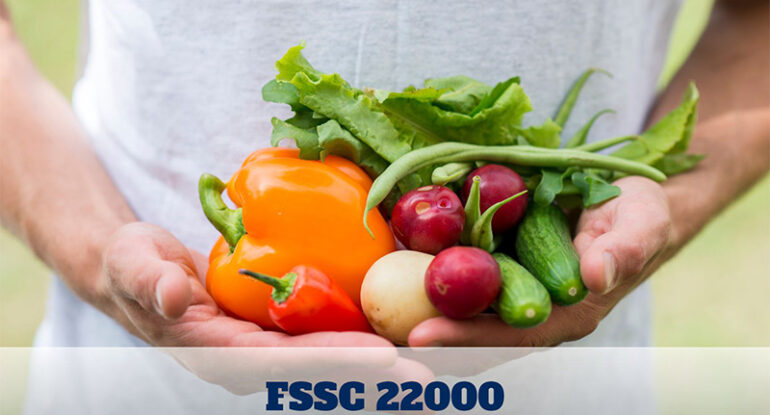FSSC 22000 – Food Safety System Certification Scheme
In the context of the food industry’s continuous growth and increasing emphasis on food safety, FSSC 22000 certification has emerged as a leading standard, providing businesses with an opportunity to affirm their position and expand their market presence. Recognized by the Global Food Safety Initiative (GFSI), FSSC 22000 is built upon the foundation of ISO 22000 and incorporates additional requirements for food defense and food fraud prevention. This certification applies to organizations involved in food production, processing, packaging, transportation, storage, and trading of food, animal feed, and food packaging. In this article, GOL will delve deeper into FSSC 22000, including its practical benefits, necessary certification requirements, and an effective implementation roadmap.
What is FSSC 22000?
FSSC 22000 is a food safety certification system, with FSSC standing for “Food Safety System Certification,” headquartered in the Netherlands. The organization aims to provide a widely accepted certification program to enhance the value of relationships between certified food organizations and stakeholders such as management, customers, and suppliers.
FSSC 22000 is a certification mechanism provided by the Global Food Safety Initiative (GFSI) for all entities involved in food production and processing within the entire food supply chain. It is based on the foundation of ISO 22000 for management system requirements and ISO technical standards, along with prerequisites specified by the program.

Recognized by the Global Food Safety Initiative (GFSI), FSSC 22000 is considered an equivalent standard and can replace previous standards such as BRC, IFS, and SQF.
The latest version of FSSC is the 5th edition, issued in May 2019. The revision of FSSC 22000 aligns with the updates to ISO 22000 in 2018.
Organizations certified to ISO 22000 need to review and supplement the prerequisite program requirements and additional requirements of FSSC 22000 to meet this standard.
FSSC 22000 ensures food safety control throughout the entire food supply chain, including stages from farming, packaging, preservation, distribution, to food and feed production, and distribution
Objectives of FSSC 22000
The main objective of FSSC 22000 is to provide a widely recognized certification program to ensure food safety, animal feed, and packaging throughout the entire supply chain for the consumer goods industry. This program achieves this objective by:
- Providing a framework for establishing, implementing, maintaining, and improving Food Safety Management Systems (FSMS) that comply with internationally recognized HACCP principles and additional requirements to meet specific consumer goods industry needs.
- Enhancing customer trust and confidence, as well as that of other stakeholders, in the organization’s ability to deliver safe and suitable products.
- Assisting organizations in meeting regulatory requirements related to food safety.
- Encouraging the adoption of best practices in food safety management.
FSSC 22000 is recognized by the Global Food Safety Initiative (GFSI) as a program equivalent to other GFSI-recognized food safety standards such as BRC, IFS, and SQF. This means that organizations certified under FSSC 22000 are considered to meet the strictest global food safety requirements.
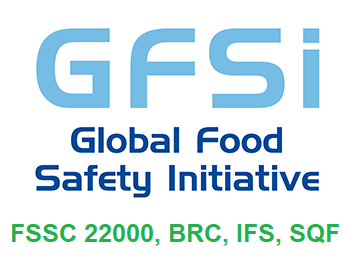
Basic structure of FSSC 22000
The basic structure of FSSC 22000 is built upon two widely recognized international standards:
ISO 22000:2018 – Food safety management systems – Requirements for any organization in the food chain. This standard provides general requirements for establishing, implementing, maintaining, and improving Food Safety Management Systems (FSMS).
ISO 9001:2015 – Quality management systems – Requirements. This standard focuses on quality management aspects of FSMS.
Additionally, FSSC 22000 includes supplementary requirements specifically tailored for the food production, animal feed, and packaging industries. These requirements are designed to ensure that organizations certified under FSSC 22000 have appropriate control measures to minimize food safety risks.
The specific structure of FSSC 22000 consists of the following parts:
- Part 1: General requirements
- Part 2: Supplementary requirements for ISO 22000
- Part 3: Supplementary requirements for ISO 9001
- Part 4: Requirements for sector-specific prerequisite programs (PRPs)
- Appendices
Part 1 outlines general requirements applicable to all organizations certified under FSSC 22000. These requirements include establishing food safety policies, identifying risks and hazards, implementing control measures to mitigate risks, monitoring the effectiveness of FSMS, and taking corrective actions when necessary.
Part 2 provides supplementary requirements for ISO 22000 specifically tailored for the food production, animal feed, and packaging industries. These requirements include implementing prerequisite programs (PRPs), controlling non-conforming products and product recalls, and supplier management.
Part 3 offers supplementary requirements for ISO 9001 specifically tailored for the food production, animal feed, and packaging industries. These requirements focus on quality management aspects of FSMS, such as document control, record control, and non-conformity management.
Part 4 outlines requirements for sector-specific prerequisite programs (PRPs). PRPs are fundamental control measures necessary to ensure food safety. Specific PRP requirements for each sector are identified in Part 4 of FSSC 22000.
The Appendices provide additional information about FSSC 22000, including guidance on assessment implementation and guidance for organizations transitioning from other food safety certification programs to FSSC 22000.
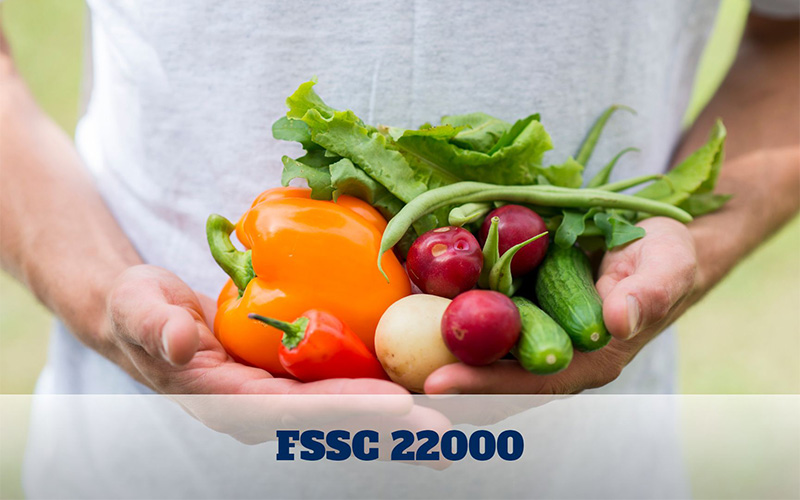
Who should comply with the FSSC 22000 standard?
FSSC 22000 is a food safety certification program designed for organizations operating within the food supply chain, including:
- Food production: Organizations involved in the production, processing, packaging, preservation, transportation, distribution, retailing, or serving of food for human consumption.
- Animal feed production: Organizations involved in the production, processing, packaging, preservation, transportation, distribution, or sale of feed for animals.
- Food packaging and packaging material production: Organizations involved in the production, processing, packaging, preservation, transportation, distribution, or sale of food packaging and packaging materials.
- Food service: Organizations providing food service, such as restaurants, cafes, schools, and hospitals.
- Retail/Wholesale: Organizations involved in the retail or wholesale of food or animal feed.
Additionally, FSSC 22000 may also be applicable to other organizations providing support services to the food supply chain, such as testing laboratories, inspection agencies, and certification bodies.
Benefits of implementing FSSC 22000 Certification
Implementing FSSC 22000 brings numerous benefits to organizations, including:
Enhancing trust from customers and stakeholders:
- FSSC 22000 is a globally recognized food safety certification program, demonstrating the organization’s commitment to providing safe and high-quality products.
- This helps to enhance trust from customers, investors, partners, and other stakeholders, thereby boosting sales and competitive advantage.
Expanding market access opportunities:
- Many buyers require suppliers to be certified under FSSC 22000 as a prerequisite for collaboration. Implementing FSSC 22000 helps organizations meet the requirements of potential buyers, opening up opportunities to access new markets and expand market share.
Improving operational efficiency:
- FSSC 22000 provides a framework for establishing and maintaining effective Food Safety Management Systems (FSMS), helping organizations to: Identify and manage food safety risks more effectively.
- Minimize waste and incidents related to food safety.
- Optimize operational processes, enhancing production efficiency.
Minimizing legal risks:
- FSSC 22000 helps organizations comply with food safety regulations, reducing the risk of legal violations and legal issues related to unsafe products.
Enhancing brand image:
- FSSC 22000 certification confirms the organization’s reputation and product quality, helping to build a professional, trustworthy, and responsible brand image.
In addition to the main benefits mentioned above, FSSC 22000 also brings other benefits such as:
- Increasing employees’ awareness of the importance of food safety.
Enhancing coordination and communication between departments within the organization.
- Promoting a culture of continuous improvement in food safety.
However, implementing FSSC 22000 also requires investment in time, resources, and certain costs. Therefore, organizations need to carefully consider the benefits and costs before deciding to adopt this program.
Overall, FSSC 22000 is a valuable certification program that brings many benefits to organizations operating in the food production industry. Implementing FSSC 22000 demonstrates the organization’s commitment to food safety, product quality, and sustainable development.
What is FSSC 22000 Version 6?
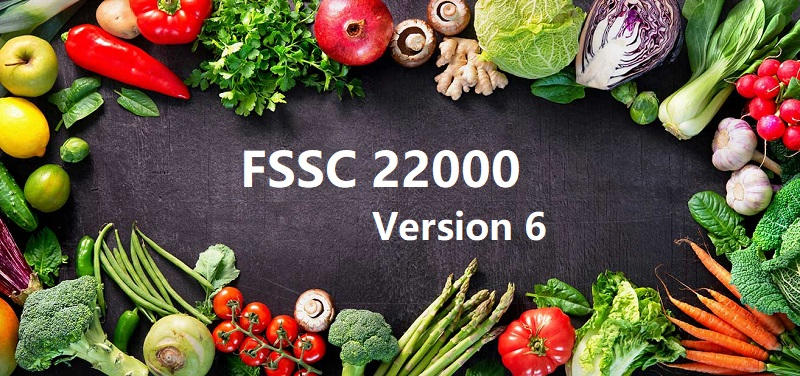
FSSC 22000 Version 6 is the latest version of the Food Safety System Certification (FSSC) 22000 scheme, a globally recognized food safety certification program. It was published in March 2023. Here’s a breakdown of its key points:
Purpose:
- Ensures safety of food, animal feed, and packaging throughout the entire supply chain for the consumer goods industry.
How it achieves this:
- Provides a framework for establishing, implementing, maintaining, and improving a Food Safety Management System (FSMS). This system adheres to internationally recognized HACCP principles and additional requirements specific to the consumer goods industry.
- Boosts confidence of customers and stakeholders in the organization’s ability to provide safe and compliant products.
- Assists organizations in meeting regulatory requirements related to food safety.
- Encourages the adoption of best practices in food safety management.
New in Version 6 (potential aspects):
- Updated requirements to reflect evolving food safety concerns and best practices.
- Clarification on existing requirements for better implementation.
- Streamlined processes for certification bodies and organizations.
Frequently Asked Questions (FAQs)
What is the difference between FSSC 22000 and other food safety certifications?
FSSC 22000 is a GFSI (Global Food Safety Initiative) recognized program. This means it is benchmarked against the highest international food safety standards. Other recognized programs include BRC, IFS, and SQF. While they share similar goals, they may have different specific requirements.
How long does it take to implement FSSC 22000?
The time required to implement FSSC 22000 will depend on the readiness of the organization and the complexity of its operations. However, typically, this process can take anywhere from a few months to a year.
Is FSSC 22000 equivalent to other food safety standards like ISO 22000 or HACCP?
FSSC 22000 is based on and incorporates the requirements of both ISO 22000 and HACCP. However, FSSC 22000 has a broader scope and includes additional requirements specifically tailored for the food production, animal feed, and packaging industries. Therefore, FSSC 22000 is considered a more comprehensive and stringent standard for organizations in this industry.
What is the difference between ISO 2200 and FSSC 22000?
The primary differences between ISO 22000 and FSSC 22000 lies in their recognition. Unlike the ISO standard, the FSSC 22000 scheme is acknowledged by the Global Food Safety Initiative (GFSI). GFSI recognition indicates that the scheme conforms to the highest global standards, enhancing its acceptance within the international food industry.
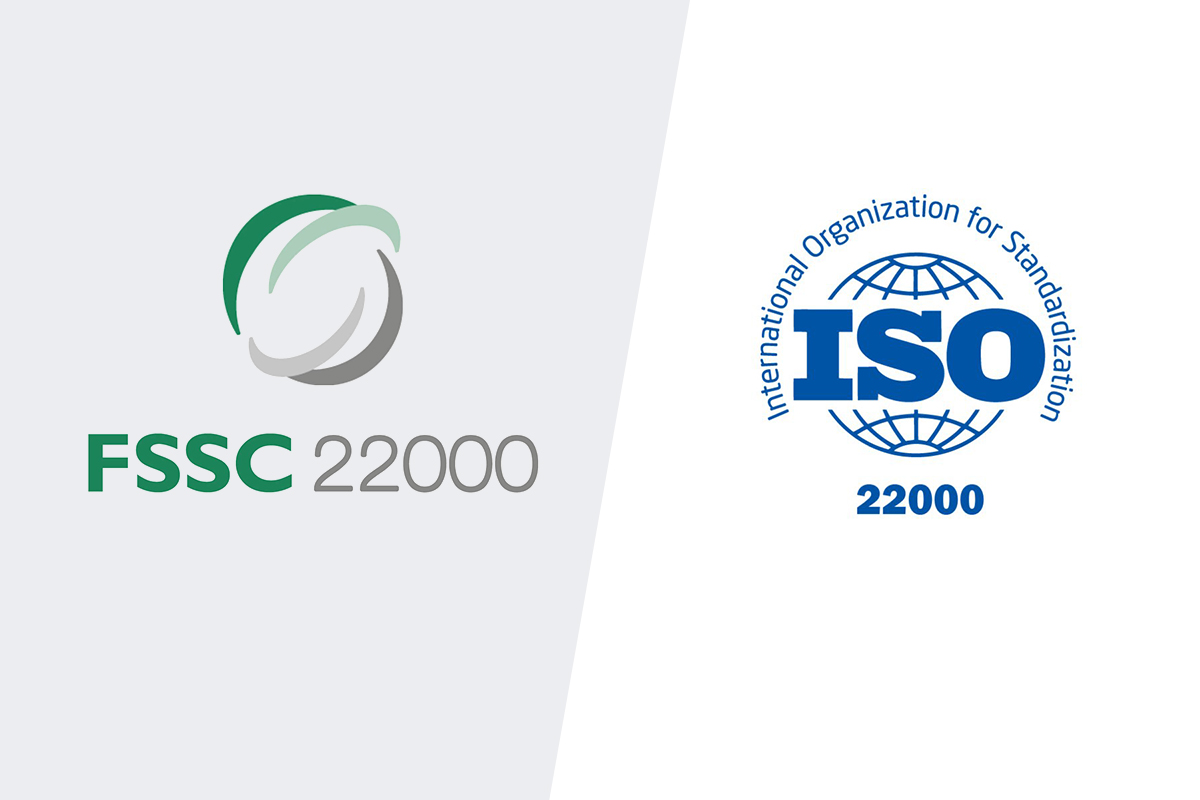
| Feature | ISO 22000 | FSSC 22000 |
| Type | Generic standard | Sector-specific standard |
| Scope | All organizations in the food supply chain | Food, feed, and packaging manufacturers, processors, and packaging companies |
| Level of Rigor | Basic | High |
| Requirements | HACCP-based Food Safety Management System (FSMS) | FSMS based on ISO 22000 with additional requirements and specific controls |
| Prerequisite Programs (PRPs) | Not specifically required | PRP required |
| Food Defense | Not required | Required |
| Food Fraud | Not required | Required |
| GFSI Recognition | Not recognized | GFSI-recognized |
| Advantages | Flexible framework, suitable for many organizations | Comprehensive, rigorous system |
| Disadvantages | Less stringent, not GFSI-recognized | More challenging for small organizations, higher cost |
| Suitable for | Organizations new to FSMS, small organizations | Food manufacturers, processors, packaging companies, seeking GFSI recognition |
What is the difference between HACCP and FSSC 22000?
HACCP (Hazard Analysis and Critical Control Point) is a systematic approach for identifying, evaluating, and controlling food safety hazards, providing a framework for developing a Food Safety Management System (FSMS). On the other hand, FSSC 22000 is a globally recognized certification scheme that builds upon HACCP principles, ensuring food safety throughout the entire food supply chain by adding specific requirements for various aspects of food safety management. In essence, HACCP lays the foundation for a safe food production process, while FSSC 22000 verifies its implementation through certification. Together, HACCP and FSSC 22000 play a crucial role in safeguarding food safety and protecting public health.
We hope this article has provided you with valuable insights into FSSC 22000. For further details on implementation processes, training, and certification consulting, please contact GOL. We are always ready to accompany you on the journey to enhancing the quality and reputation of your food brand.
Stay tuned to GOL for updates on in-depth articles about food safety standards, quality management systems, and effective business development solutions.


